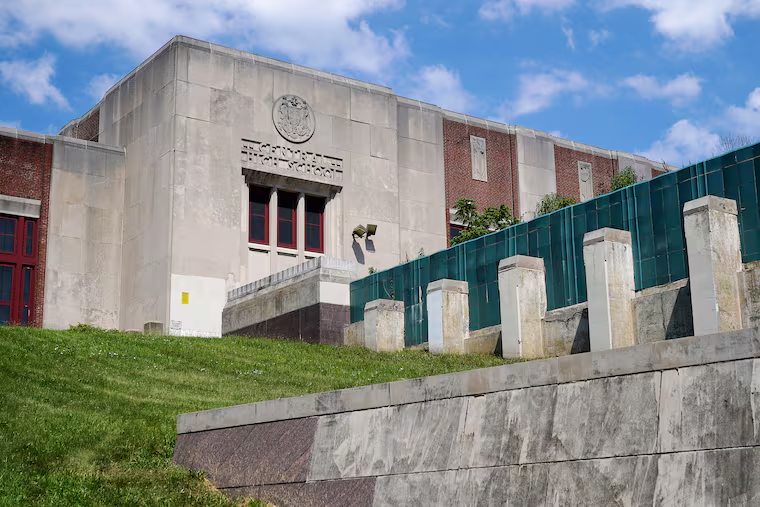Philly’s special-admissions selection process is delayed. The timeline remains unclear.
District officials offered no specifics on why the criteria-based school admissions process had been delayed. The process has been frustrating for some families.

Families whose children applied to Philadelphia’s special-admissions schools were supposed to learn the results of the school district’s lottery Friday.
Now, that timeline is unclear. The district’s website said results will be available “in January, 2023,” but a spokesperson said Thursday night she could not comment on the timeline, or answer questions about its delay.
The Philadelphia School District overhauled its criteria-based admissions process last school year, shifting from one in which principals largely had say over who got into its 22 selective schools to a centralized lottery system. The aim was equity; the demographics of some of the city’s magnets do not match Philadelphia’s diversity.
If admissions criteria are met, students from certain underrepresented zip codes get automatic admission to four magnets: Carver High School of Engineering and Science, Central, Masterman, and Academy at Palumbo. Those zip codes are 19140, 19139, 19134, 19132, 19121, and 19133.
But the changes have proven controversial — a group of parents has sued the district over the policy, saying it has moved to a “blatantly unconstitutional, race-based” system. That lawsuit is still pending.
Results of last year’s overhauled process were mixed, research shows. While more students and more students of color met admissions criteria, spots at the city’s elite schools remain elusive for many. Only 2% of Black and 3% of Latinx eighth graders citywide met the bar for Masterman entry for the 2022-23 admissions cycle, for instance, and 8% of Black and Latinx students hit Central’s target — and those numbers reflect eligibility, not admissions.
The district did make some changes to the process for this year. In addition to tweaking the zip codes that receive preference, the district dropped a controversial, computerized writing test that had been used for admissions at some schools. It also reinstituted the use of state standardized test scores as an admissions criteria; PSSA scores were unavailable the previous year because of the pandemic.
Superintendent Tony B. Watlington Sr. told The Inquirer’s editorial board this month that the restoration of the PSSAs as part of the admissions picture was important.
“I think that there is a place for standardized test scores, even with all of the the inherent racial bias that we know is built into standardized test scores,” Watlington said. “I think when you make tests one of multiple measures, which I believe strongly in, that’s the way to go.”
Though the decision to change the city’s admissions process was made by his predecessor, William R. Hite Jr., Watlington suggested the basic tenets of the policy are here to stay.
“I think the previous administration made a good decision to move to a lottery-based admissions process for equity considerations,” Watlington said.
Parents navigating this year’s process say it’s been flawed and nerve-racking. Counselors at some schools say they’ve been inundated with questions, and have few answers.
“School counselors have not yet been notified of the date when lottery results will be released,” said one counselor, who asked to remain anonymous for fear of reprisal. “Some families and students have expressed that they’re anxious about the results, and are just looking for clarity and transparency from the district.” Syrita Powers, a West Philadelphia parent whose daughter, Madison, is an eighth grader at Barry Elementary, said she’s been pleased by the process. Madison, a strong student with special needs, applied to five high schools: Parkway Center City, Bodine, West Philadelphia, Olney, and Constitution.
As of Thursday, Madison had received eligibility decisions — but not final results — from all but Parkway Center City, which offers students the opportunity to earn a Community College of Philadelphia degree along with their high school diploma. Madison wants to go to Constitution High, her mom said.
“I feel like it’s been run really well,” Syrita Powers said.
But a number of families, particularly those awaiting decisions from the most in-demand schools, have said the process has been fraught with problems.
Joanie Mazelis is helping her twins, eighth graders at Meredith Elementary in Queen Village, to figure out what’s next.
Both her children were at first flagged as ineligible for schools they in fact met criteria for. Mazelis happened to be monitoring her kids’ applications in the online portal, and appealed the ineligibility by the deadline. Apparently, whole swaths of students who met the criteria for schools had, by some glitch, been deemed ineligible, Mazelis said.
“But think of a not well-resourced, not well-connected parent, maybe even in one of those preferred zip codes,” said Mazelis, a professor. Would they have caught the error by the district’s deadline? she wondered.
“This whole system has been marked by lack of transparency and disorganization,” said Mazelis. “I’m a sociologist, and I care about inequality and racial diversity. I actually think the intention behind the lottery is a good thing — we should have increased diversity. I think that’s OK if you lower thresholds or give certain zip codes preference. But this didn’t accomplish all the goals they wanted.”